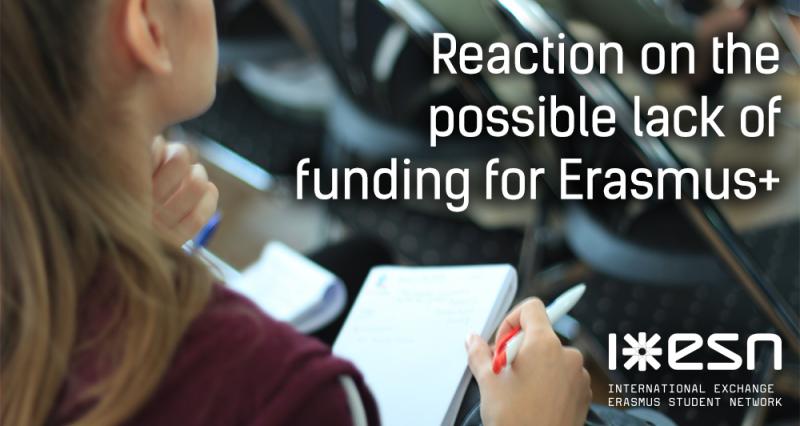
Official statement by the Erasmus Student Network[1]
Brussels, 8 of October 2014 – The Erasmus Student Network (ESN AISBL) would like to express its concern regarding the last press release published by Jacek Dominik[2], Commissioner for Financial Programming and Budget.
Given the current situation of financial cuts to education on the national level, EU programmes such as Erasmus+ have become an important element to overcome the unacceptably high youth unemployment in Europe. In a European labour market where the offer and demand for jobs is geographically unbalanced, mobility is a key driver to overcome this challenge through the promotion of labour mobility. The recent Erasmus Impact Study[3], which ESN has co-authored, leaves no room for doubt that student mobility is essential to bring young people into employment. The study shows, for example, that more than 85% of Erasmus students who study or train abroad enhance their employability and are half as likely to face long-term unemployment compared to non-mobile students.
In 2009, the Member States of the European Union agreed that by 2020, 20% of those graduating in the European Higher Education Area should have had a study or training period abroad, thus highlighting the importance of mobility for the future of Europe.
In a recent communication3 by Jacek Dominik, a strong concern over the financial situation of different European programmes is raised. Jacek Dominik explains that a disruption in the payment of Erasmus+ grants to beneficiaries is to be expected if no agreement on the budget amendment for 2014 and the draft budget for 2015 can be found soon. A similar situation occurred last year and fortunately the necessary funds to sustain the payments to our students could be allocated in a timely manner. Our last ESNSurvey[4] publication has shown that ‘financial issues’ are the major obstacle for student mobility and that further complications can cause irreversible damage to the success and reputation of the programme.
Therefore, we urge all involved stakeholders, especially the Member, to immediately ensure liquidity in the EU budget so that students do not suffer the consequences of the budgetary policy of the European Union. Furthermore, national governments and Higher Education Institutions should advance sufficient funds to ensure that the financial flow to students is not disrupted. Finally, the Council of the EU should ensure that similar situations are not repeated in the future whereby important programmes, such as Erasmus+, experience financial shortages.
[1] Erasmus Student Network (ESN) is a non-profit international student organisation. Our mission is to represent international students, thus provide opportunities for cultural understanding and self-development under the principle of Students Helping Students. We are 13.500 members from 460 local associations in 37 countries working on a volunteer base in Higher Education Institutions. We are offering services to 160.000 students.
[2] EU BUDGET: "(NOT) ENOUGH IS (NOT) ENOUGH!!!, European Commission - SPEECH/14/620 (24/09/2014) by Jacek DOMINIK
[3] Erasmus Impact Study: The Effects of mobility on the skills and employability of students and the internationalisation of higher education institutions, European Commission, September 2014.
[4] ”International Experience and Language Learning”, Research report of the ESNSurvey 2014, by Jesús Escrivá Muñoz (ed.), Emanuel Alfranseder, Paula Danciu, Julia Fellinger, Roberta Piscone, Sandra Rimavičiūtė, Jurgita Stasiukaitytė



Follow ESN